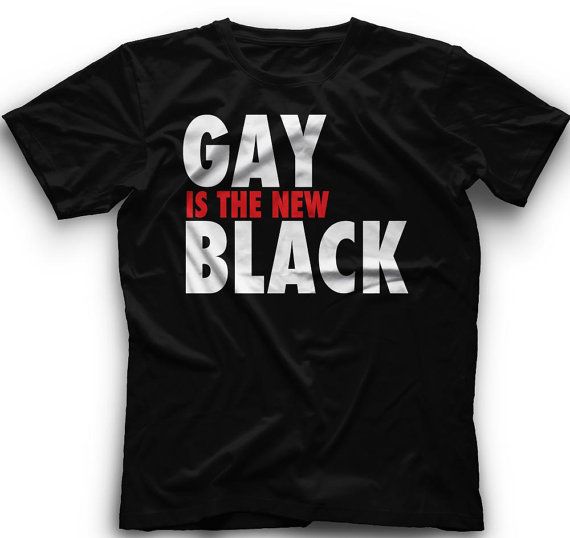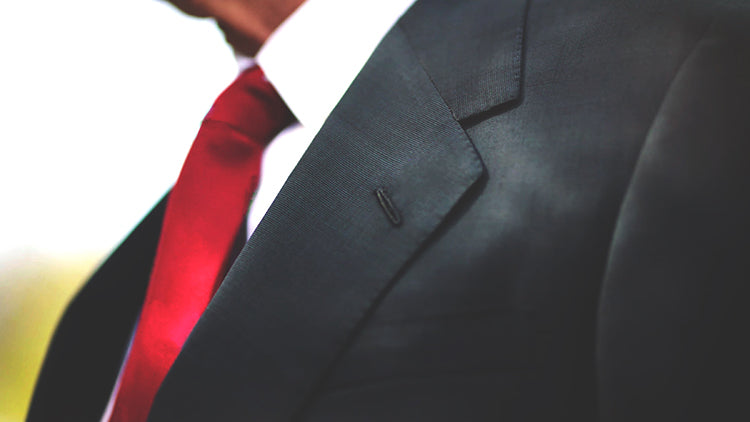Relationship Between Politics and Fashion
Impact of Politics on Fashion
At first glance, it may seem that fashion and politics are mutually exclusive. And in fact, in many cases they are. But history has an interesting narrative when it comes to politic's impact on fashion. There have been many occurrences where fashion was used for social change. No garment has seen more controversy than the T-shirt. Millions have used this garment as a walking billboard to silently but effectively establish a platform for equal rights, religious expression, ethnic/racial bias, and general inpropriety reflecting the wearer's core values.

Nevertheless, no platform has been more controversially exhibited on a tee than politics. This has been especially noticeable since the 2008 Presidential election. I have a few theories around why this happens:
1. The Political World Is Very Binary
There are not many mainstream topics in American society that are as binary as politics. The whole system of democracy is founded on this polarity. You are either liberal or conservative. Either Democrat or Republican. For or against. True, most sensible people are a combination of these things and rarely all of any. But the political ecosystem serves well for taking sides. In inherently establishes an "us" versus "them" dichotomy with which an individual can easily plant a flag and take a side.
2. Clothing Is Protected By The First Amendment
That's right. Clothing is protected by the First Amendment and the concept of Fair Use. Fair Use essentially states that copyright infringement cannot be claimed if the work falls within certain usage criteria as protected by the First Amendment. It's one thing to casually say "political figure X basically said Y". But if you say "political figure X said 'Y'", you are protected by the First Amendment because quotes were used (learn more here). Because you are quoting, there is a more transparent dialog that can be had without fear of censorship thanks to Fair Use. This applies to clothing as well. The only exception may be laws in a given state that prevents political paraphernalia at polls.
Further, because political figures are public servants, their likeness is open to public use as long as it follows Fair Use. This means Hillary Clinton cannot file a copyright infringement claim if a t-shirt with her likeness is sold on CafePress as long as its within the bounds of Fair Use. However, if the likeness has Hillary promoting Disneyland, she would have a valid claim.
3. Politics Is The Doorway To Our Core Values
There's a reason why politics in the workplace is generally ill-advised. Stating that one is Democrat or Republican in itself is not much different than saying I prefer blue over red. It's the implications of the declaration that tend to cause controversy. We make assumptions about an individual based on our established social and personal paradigms. And in turn, we know those assumptions are made about us. So wearing a "Make America Great Again" t-shirt will generally carry much deeper meaning to the wearer and observer than the words themselves. It is well understood that the wearer is publicly taking a posture, where both the act and the public display of the act (versus wearing around the house) are rooted in the wearer's core values. The wearer knows the shirt will garner controversy, but is steadfast in the First Amendment right to wear whatever he/she wants. There is a certain pride taken in exposing this for the world to see. And in many cases, the controversy is welcomed.

Impact of Fashion on Politics
The impact of politics on fashion is fairly easy to see. But what about the impact of fashion on politics? What does that even look like? It's not as difficult as you might think.
When you think of a male politician, what comes to mind? Navy blue single-breasted suit perhaps? White button-up dress shirt? Conservative necktie with stripes? That's no accident. Success in politics today means to look like your constituents. If you dress extravagantlys, you're not relatable to the majority of the population. However, if you dress clean and conservatively (in the sense of core American values), you are perceived to exemplify the great American ideals upon which this country was founded. Thus $5000 Italian suits with $2000 Spanish wingtips are likely going to miss the mark. This is conservative fashion influencing politics.
Now, when you see Donald Trump at a rally wearing a solid ruby red tie, what statement do you feel he's making? Pretty easy... power. The red tie has always been the epitome of business power, regardless of boardroom, courtroom, or stateroom. Most political figures, particularly presidential candidates, will stay away from solid colors, particularly red. Data shows that it can be interpreted as abrasive. However, variants of red (and blue for that matter) with other colors is highly adopted in the political arena. And there's data that backs it up. Yes, red conveys power, but it also conveys passion, desire, and love. These elements are critical when communicating a particularly controversial stance. Blue is associated with trustworthiness, peace, and tranquility. These attributes are important for communicating strong decision-making during crisis. You can learn more about the importance of red and blue in politics here.

Prabal Gurung fall/winter 2017Credit... Ben Sklar for The New York Times
In the end, fashion and politics are not necessarily "hand-to-glove", but they're not exactly "oil and water" either. The relationship is fit-for-purpose. They influence each other only when there is a need. Regardless of which side is influencing, the wearer is looking to convey a message through the wardrobe that invokes an ideology in society, which is pretty much the purpose of fashion in the first place... to make a statement and to be heard without saying a word.
Related posts
THE CLUBSTAR IMPAVIDUS, FEATURED IN SEPTEMBER GQ [BRITISH]
The ClubStar Impavidus handmade men's bracelet featured in GQ [British]!
Read moreOUR NEWSLETTER
Get the latest news you need, straight to your inbox.


![THE CLUBSTAR IMPAVIDUS, FEATURED IN SEPTEMBER GQ [BRITISH] - The Cadence Company](http://thecadenceco.com/cdn/shop/articles/the-clubstar-impavidus-featured-in-september-gq-british-the-cadence-company.png?v=1704757825)